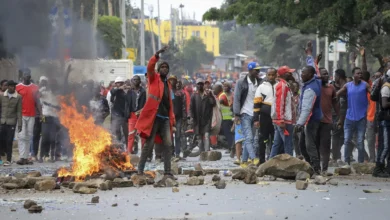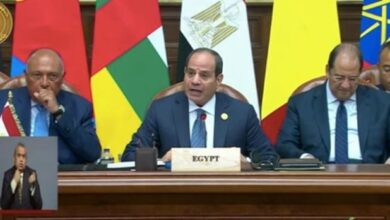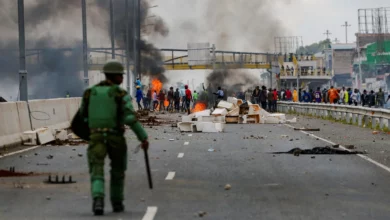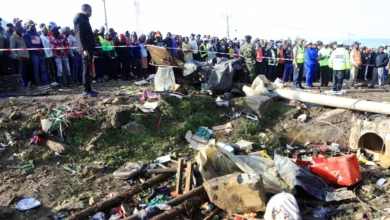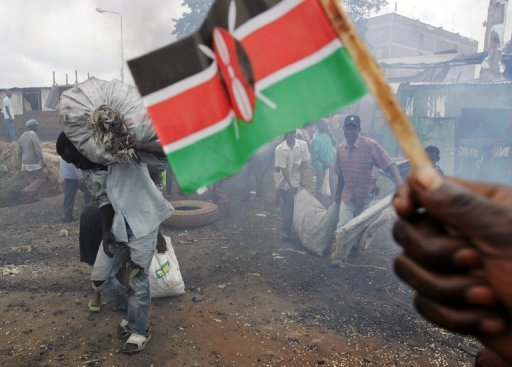
Kenya's presidential race tightened on Friday as Uhuru Kenyatta's lead slipped to a level that could mean there is no outright winner and open the way for a tense, second round run-off against his main rival Prime Minister Raila Odinga.
Kenyatta, 51, the deputy prime minister, who is due to go on trial at The Hague on charges of crimes against humanity linked to the violent aftermath of the last election in 2007, has led since results started trickling in after polls closed on Monday.
Results from strongholds loyal to Odinga, 68, closed the gap, but with counting continuing and about a quarter of constituencies still to report, Kenyatta could yet secure more than 50 percent of the votes needed for a first-round victory.
The poll is seen as a critical test for East Africa's largest economy, whose reputation as a stable democracy was damaged by the bloodshed that followed the 2007 election. Much will rest on whether the final result is accepted, and whether any challenges take place in the courts or on the streets.
By 0530 GMT on Friday, with 9,325,451 total votes tallied, Kenyatta had 4,701,787 votes or 50.4 percent, to Odinga's 4,037,327 or 43.3 percent, according to a display by the electoral commission. That was based on votes reported from 213 of 291 constituencies.
As counting has progressed, Kenyatta's tally has been nudged above and below the crucial 50 percent mark. If no candidate achieves more than that level, the top two go to a run-off tentatively set for April.
Kenyatta and Odinga camps have both raised questions about the vote process, so legal battles could push that date back, heightening tensions in the deeply divided nation.
Tribal votes
Despite the delays and technical glitches, international observers have broadly said the vote and count were transparent. But four days after the vote, Kenyans are still in the dark about the outcome.
Turnout was estimated by election officials at more than 70 percent of the 14.3 million eligible voters, who were undeterred by pockets of violence that killed at least 15 people on Monday.
Reflecting how voting tends to run along ethnic lines rather than ideology, constituencies in tribal strongholds of the leading hopefuls often report results that show more than 90 percent or more of votes going to one candidate. That means the remaining constituencies to report could still swing the vote.
Kenyatta comes from the Kikuyu tribe, Kenya's biggest ethnic community, and Odinga is a Luo. Neither can rely solely on their own tribal supporters to win. Both have running mates from other tribes to beef up their support.
Odinga's camp raised the strongest challenge to the process on Thursday when the tally still showed Kenyatta on course to win outright. They said counting should be stopped because it lacked integrity and some results were "doctored," raising tensions in the mostly peaceful process.
One international observer told Reuters: "I have seen nothing to indicate that the election is not credible."
Issack Hassan, chairman of the Independent Electoral and Boundaries Commission, said the count would not stop and said the vote tally was genuine.
European Union Ambassador to Kenya Lodewijk Briet said the vote-counting was sound and should be allowed to continue.
Western worries
"As Chairman Hassan has just said, it should not be stopped midway. It should continue. If people have a problem with the integrity, the legal disputes settlement mechanism exist and should be followed," Briet told Reuters.
The United States and other Western nations, big donors that view Kenya as vital in the regional battle with militant Islam, have already indicated that a victory by Kenyatta would complicate diplomatic relations.
The Kenyan shilling has swayed against the dollar, gaining on reassurances of a smooth counting process and buckling on concerns that delays in announcing a winner would prompt rivals to challenge the election outcome. Analysts said a run-off would unnerve markets by prolonging the uncertainty.
Kenyatta, son of Kenya's founding president, Jomo Kenyatta, and his running mate, William Ruto, face trial at the International Criminal Court in The Hague on charges of unleashing death squads after the 2007 election. Both men deny the charges and have said they plan to clear their names.
Kenyatta's Jubilee coalition has complained about delays in the count and challenged the commission over its decision to include rejected votes in calculating the final tally.
Rejected votes are for now running at more than 85,000 and could help tip the balance in favor of an outright win for Kenyatta if they are excluded from the final calculations.
The Jubilee coalition also accused British High Commissioner Christian Turner of seeking to meddle in the vote. Turner said the accusations were "entirely false and misleading," showing how sensitive both sides have become in a tense race.

